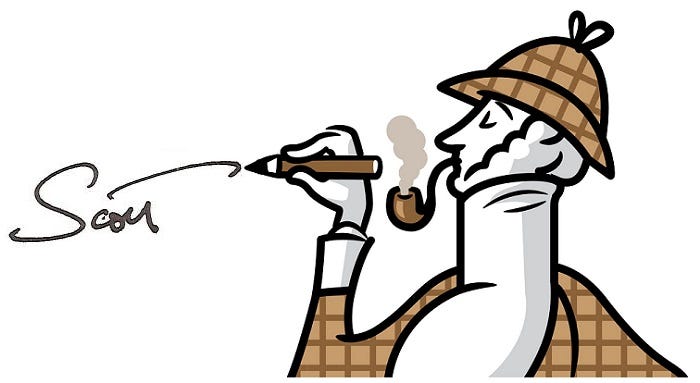The Courage to Face Ingratitude
Gratitude takes work

“The laws we live by, the freedoms we enjoy, the institutions that we take for granted—and we should never take for granted—are all the work of others who went before us. And to be indifferent to that isn’t just to be ignorant, it’s to be rude. And ingratitude is a shabby failing.”
— David McCullough, 2005
Even in the most difficult of times, it’s possible to express gratitude.
That image above — a depiction of the early days of the Pilgrims — is a reminder of gratitude among hardship.
We’re about to celebrate Thanksgiving here in America, and as we give thanks, one wonders: how often do we practice gratitude?
There’s a difference between thankfulness and gratitude.
We teach children to say “thank you” when someone says something nice or does something for them. It’s proper etiquette. But at its core, thankfulness is reactive.
Gratitude, on the other hand, is a deeper consideration. It’s a two-step process: first, we see goodness and affirm it, and then we recognize that goodness is external — it comes to us.
It’s difficult to reflect on our own successes, talents, and accomplishments when we’re envious of other people. One cure for that is to stop comparing yourself to others and instead express gratitude for yourself.
To make room for gratitude in your heart, you need to make it a priority through practice and a conscious effort, at the intersection of reflection and kindness.
Show your gratitude for someone in your life with a gift subscription to Timeless & Timely
Thankfulness Expressed in Action
In 1902, William George Jordan wrote an essay in The Power of Truth: Individual Problems and Possibilities called “The Courage to Face Ingratitude” that addresses this principle:
“Gratitude is thankfulness expressed in action. It is the instinctive radiation of justice, giving new life and energy to the individual from whom it emanates. It is the heart’s recognition of kindness that the lips cannot repay. Gratitude never counts its payments. It realizes that no debt of kindness can ever be outlawed, ever be cancelled, ever paid in full. Gratitude ever feels the insignificance of its instalments [sic]; ingratitude the nothingness of the debt. Gratitude is the flowering of a seed of kindness; ingratitude is the dead inactivity of a seed dropped on a stone.
“Man should not be an automatic gas-machine, cleverly contrived to release a given quantity of illumination under the stimulus of a nickel. He should be like the great sun itself which ever radiates light, warmth, life and power, because it cannot help doing so, because these qualities fill the heart of the sun, and for it to have them means that it must give them constantly. Let the sunlight of our sympathy, tenderness, love, appreciation, influence and kindness ever go out from us as a glow to brighten and hearten others. But do not let us ever spoil it all by going through life constantly collecting receipts, as vouchers, to stick on the file of our self-approval.”
That last phrase of Jordan’s — “constantly collecting receipts” — perfectly illustrates how some people go about what they think is gratitude.
If we try to lead with our values rather than transactions, we’ll improve the world around us.
What you do and what you say, today and every day, reflects who you are and what you stand for.
We Are Each Day Indebted to Thousands
And while Thanksgiving occurs just once a year, if we practice true gratitude, our thanks and reflection should extend beyond one gathering.
Every day, our homes and workplaces should be places to demonstrate what we believe and how we share the gifts we've been granted.
Those gifts come from those who have traveled this path before we did, who made sacrifices, cleared the way, and worked together for the greater good:
“Let us conceive of gratitude in its largest, most beautiful sense, that if we receive any kindness we are debtor, not merely to one man, but to the whole world. As we are each day indebted to thousands for the comforts, joys, consolations, and blessings of life, let us realize that it is only by kindness to all that we can begin to repay the debt to one, begin to make gratitude the atmosphere of all our living and a constant expression in outward acts, rather than in mere thoughts.
“Let us see the awful cowardice and the injustice of ingratitude, not to take it too seriously in others, not to condemn it too severely, but merely to banish it forever from our own lives, and to make every hour of our living the radiation of the sweetness of gratitude.”
Ingratitude is indeed a shabby failing.
We can do better.
Wishing you the best this holiday season with a grateful heart for being part of this little community.
There’s so much to learn,




